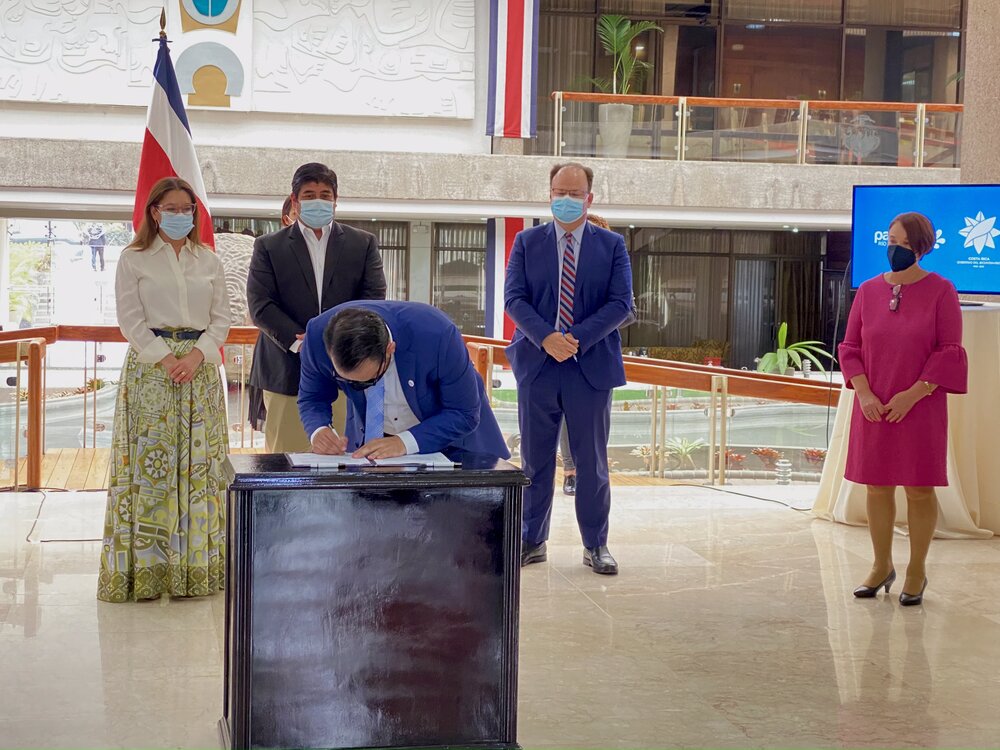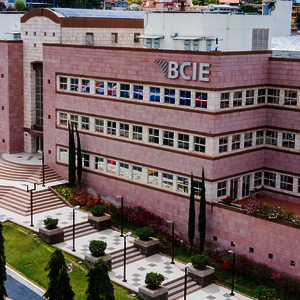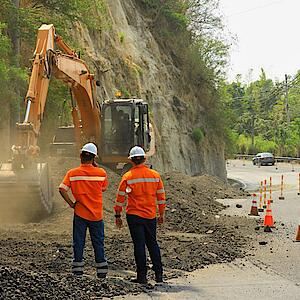More than 700,000 Costa Ricans in the North Pacific will benefit from sustainable and uninterrupted water service with CABEI support

This Monday, the loan to develop the Water Supply System Project for the Middle Tempisque River Basin and Coastal Communities (PAACUME) was formalized.
San Jose, April 4th, 2022.- Agricultural activity, the main driver of the economy in the province of Guanacaste, in Costa Rica's North Pacific region, will be boosted by the development of the Water Supply Project for the Middle Tempisque River Basin and Coastal Communities (PAACUME), which will provide sustainable and uninterrupted water service throughout the year.
To this end, a US$425 million financing contract was signed on Monday between the Central American Bank for Economic Integration (CABEI) and the Republic of Costa Rica, which contemplates the construction of hydraulic, civil and mechanical structures to guarantee water resources in the area, which constantly suffers water shortages due to its climatic characteristics.
At the signing ceremony, the President of the Republic, Carlos Alvarado, emphasized: "We are perfectly aware of the challenges faced by the province given the scarcity of water, the adaptations to climate change and the urgency of the liquid to sustain the productive activities of all Guanacaste women and men. We are deeply satisfied to be on the verge of launching such an ambitious and necessary project for our people and for the country's future generations."
CABEI Executive President, Dr. Dante Mossi, said, "As CABEI, we are pleased to have accompanied the Costa Rican authorities on the long road that has been traveled with this vitally important project for the people of Guanacaste, which will ensure year-round access to drinking water and reactivate the economy by providing sufficient water to irrigate crops and supply tourism.”
The scope of the project includes the construction of the Río Piedras reservoir, which will supply 20,000 liters per second of surface water throughout the year to the cantons of Carrillo, Santa Cruz and Nicoya, irrigating 18,639 hectares of agricultural and livestock activities.
This project will also provide drinking water to half a million people with a projected 50-year growth and irrigation for some 1,213 hectares of tourism projects, and an estimated 200,000 people in the region will benefit indirectly from the increase in productive activity and the replacement of groundwater use with surface water.
Through this financing, CABEI contributes to the Sustainable Development Goals (SDGs), specifically to achieving food security and improved nutrition, sustainable agriculture and employment generation.

![[Translate to English:] [Translate to English:]](/fileadmin/_processed_/e/3/csm_WhatsApp_Image_2024-04-18_at_2.12.23_PM__2__590ef43ade.jpeg)

